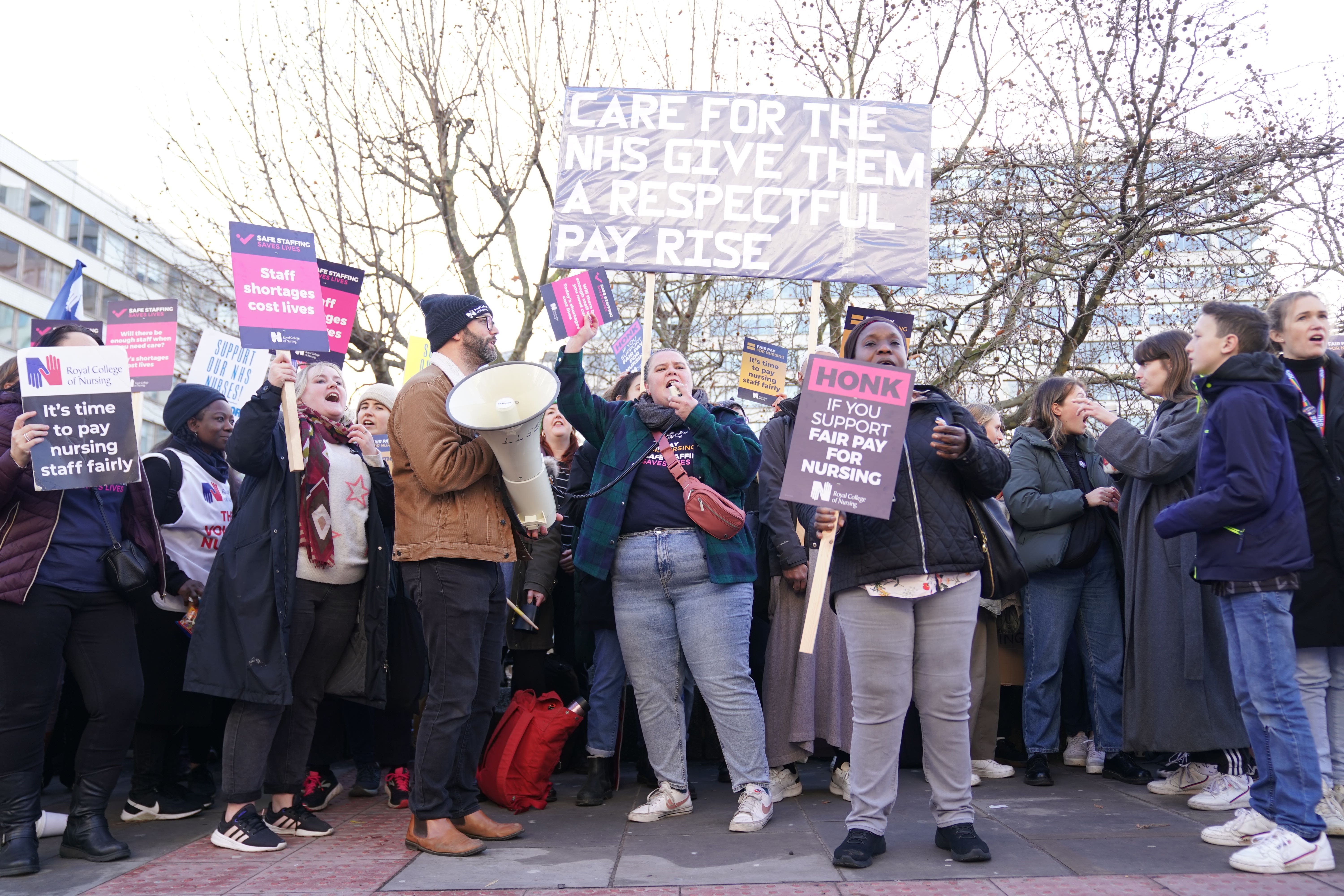Government could and should settle strikes. But are talks just a charade?
The government appears unwilling to take meaningful steps towards settling its disputes, says James Moore


After spending weeks sitting on its hands and hoping that hackneyed tabloid depictions of union bosses as reds under the bed out to wreck Britain would erode public sympathy, the government has finally moved itself to offer talks.
They didn’t get very far. Union reaction ranged from anger, to eye rolling, to bitter disappointment, to shrugs and more eye rolling.
Unison, the biggest health union, did concede that health secretary Steve Barclay had finally moved himself to admit that pay is an issue that needs resolving. It was also interesting to note that the RMT’s Mick Lynch – who had bluntly told ministers to “stop play-acting” – was unusually tight-lipped upon exiting his session ahead of more talks later this week.
But damning with the faintest possible praise from one union and the lack of a fiery comment from another doesn’t amount to very much.
So the disruption continues. The GMB said the talks fell “well short of anything substantial” that could stop this week’s ambulance strikes. More seem set to follow.
Yes, the disruption is mostly in the public sector but this is clearly the last thing a country in the middle of an economic slump needs.
When it comes to the semi-privatised rail industry, the Rail Delivery Group estimated that the disruption in the late part of December and earlier this month cost the industry £600m. While widespread home or hybrid working will have limited the wider economic impact compared to previous eras, this can’t have helped Britain’s stuttering GDP. Meanwhile, taxpayers are on the hook for £125m-£175m each month to plug a gap created by travellers who haven’t returned post-pandemic.
I imagine that the intention of those figures is to put pressure on the unions. But they could just as easily be applied to the government which has the capacity to fix this but appears unwilling to do so.
Instead it is brandishing the threat of draconian anti-strike laws, including giving employers the power to sue unions. Squirting petrol on a bonfire like this was risibly described by the business secretary Grant Shapps as “very reasonable” at the end of last week. What a way to negotiate.
The talks seem to have been prompted by the fact that the government is slowly starting to realise that the standard tactics aren’t working. The rail unions, the health unions, the education unions; none of their demands are unreasonable. This fight of theirs, it is not ideological in nature. Having endured years of parsimonious settlements, having watched their wages eaten away by the cost of living crisis, their members have snapped.
The public understands this because the public is in the same boat. It also seems slightly bizarre that ministers and Tory MPs joined people in applauding those among the strikers who were deemed “key workers” during the pandemic, only for them to be depicted as the spawn of satan for asking for no more than fair compensation for doing important jobs in the aftermath.
We should remember that securing the authority to launch industrial action is far from easy. Votes have to be conducted by old-fashioned paper ballots. Notice has to be filed. And strikers have to be willing to surrender wages; incurring short-term pain in the hope of long-term gain. Needless to say, this is not an easy time to be surrendering wages.
The fact that so many workers have been willing to submit their ballots and to observe the strikes that have been called across so many different parts of the public and semi-privatised sectors says something.
The best of it is, the money is there to settle this. Gas prices have fallen to below the level they stood at before the start of the war in Ukraine. The bill for the government’s energy support plans will therefore fall. The Treasury should thus have some headroom.
It should be used. Trouble is, a cynical view of the current talks would be that they represent nothing more than a bad faith act on the part of a government that wrote the book on bad faith.
If that is the case, perhaps we, as ministers’ employers, should be granted the right to sue them? While they’re not striking, they are clearly failing to do their jobs and it is costing all of us money. Wouldn’t that be “very reasonable”, Mr Shapps?






Join our commenting forum
Join thought-provoking conversations, follow other Independent readers and see their replies
Comments